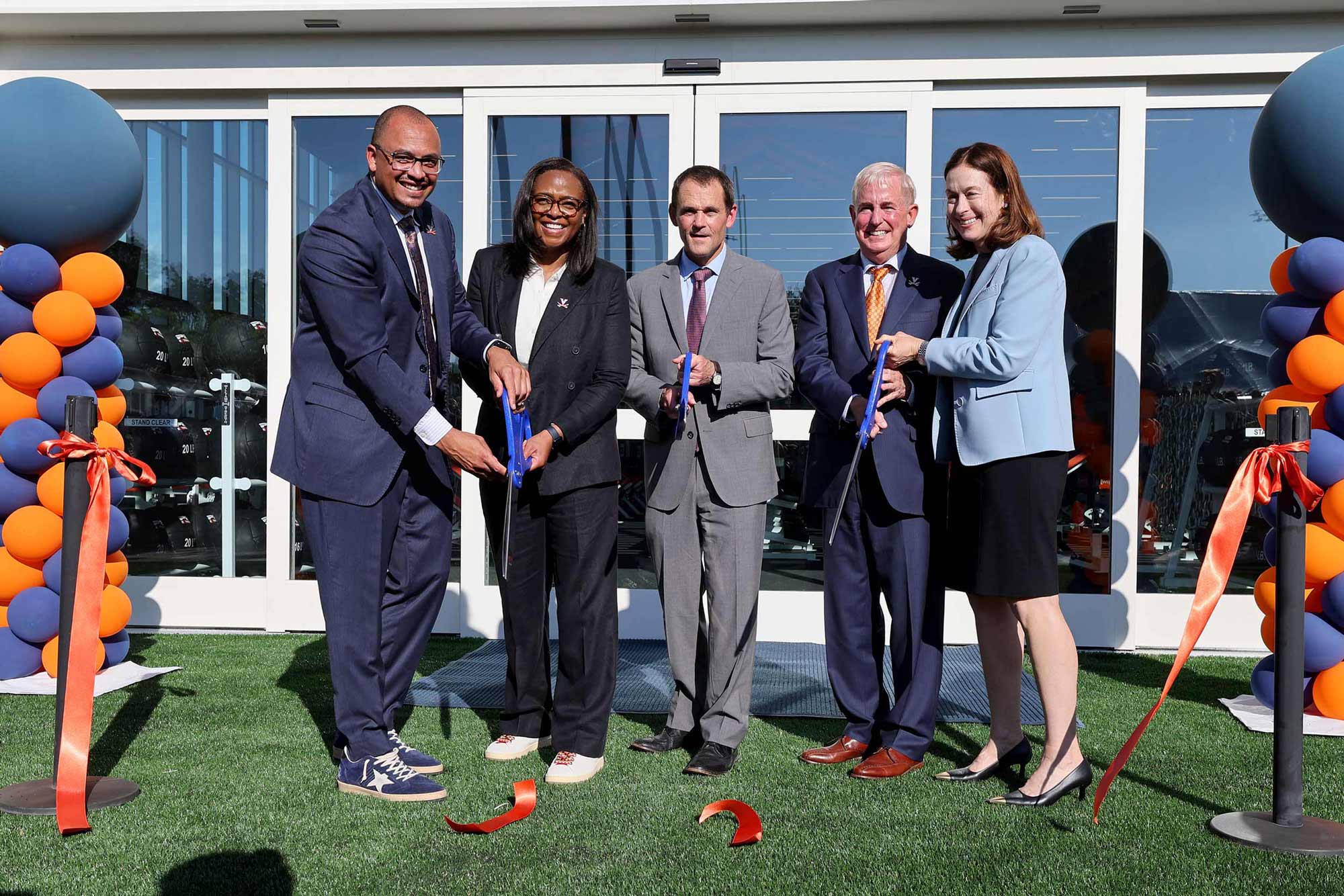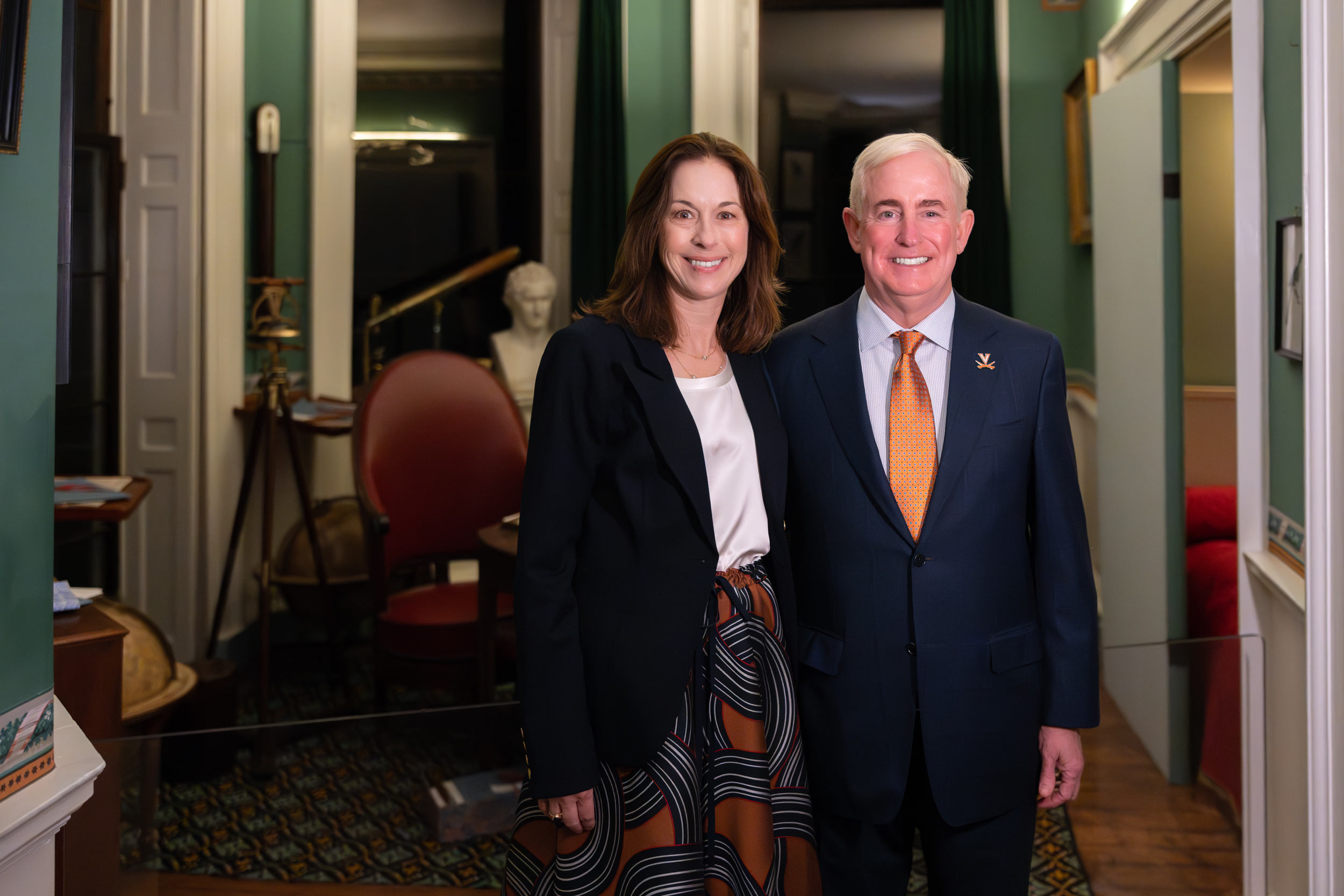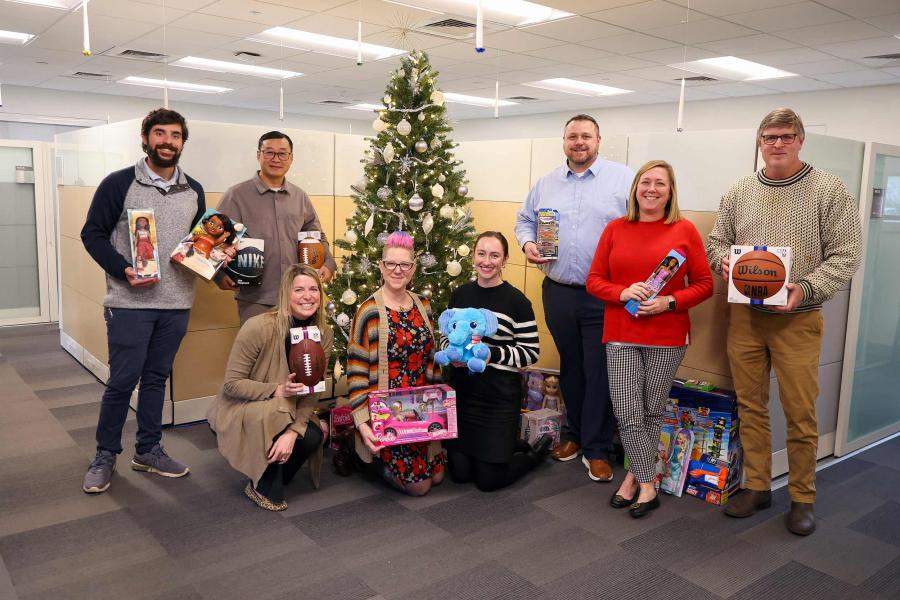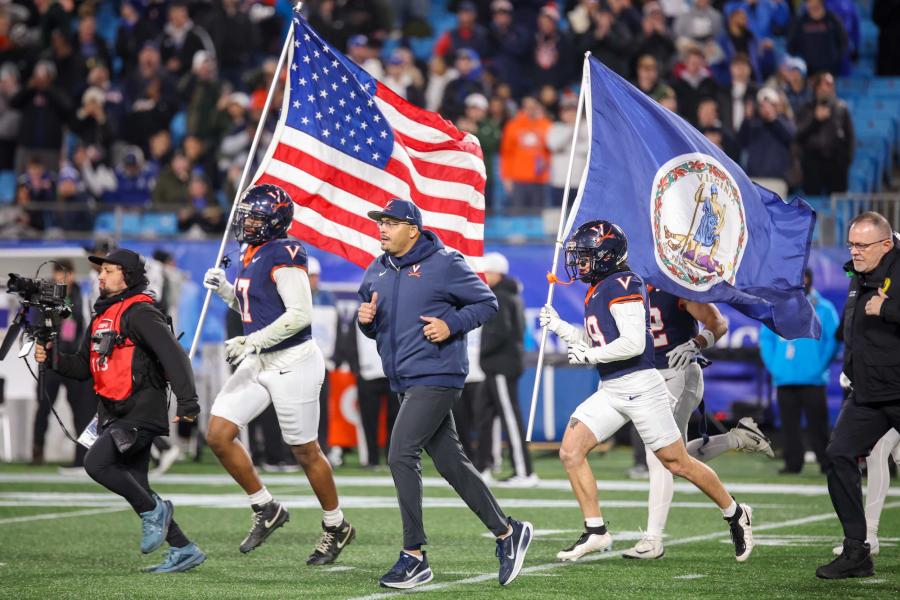Robert Hardie needed a date to the 1994 Darden School of Business holiday party. Back then, there were far more men in the program than women, so the ratio wasn’t in his favor.
A Darden School classmate scribbled a name and number on a scrap of paper.
“Here,” Hardie remembers the classmate saying. “It’s my sister’s number. You should call her. You two have a lot in common.”
Three decades later, Robert and Molly Hardie have more in common, including five sons, a family office, a family foundation and – for the first time in history – overlapping leadership of boards supervising a pair of UNESCO World Heritage sites.
Robert is the rector of the University of Virginia’s Board of Visitors. Molly is the chair of the Thomas Jefferson Foundation’s Board of Trustees, the organization that owns and operates Monticello.
“There was no master plan,” Molly said. “I think we are passionate about public service and the community. And while we were raising our five children, we took opportunities that were available to us here, and it just landed that way.”
Although the dual leadership is coincidental, the couple’s longtime commitment to their alma mater and public service in the region has routinely placed them in proximity. Robert is a triple Hoo with a bachelor’s degree from the College of Arts & Sciences, and an MBA and doctorate from the Darden School of Business. Molly is a UVA School of Medicine graduate and a UVA-trained pediatrician, although she decided long ago to devote her time to her family rather than a practice. And even though they came from different backgrounds – Molly’s Richmond family has a long history of philanthropy, while Robert was a first-generation student – giving back to UVA and Charlottesville came naturally to both.
“I credit UVA with changing my life,” Robert said. “I’m from Roanoke, a first-generation college student. My parents stressed education as the vehicle for a meaningful life, so all my brothers and sisters went to college. UVA has been a part of me since I became a fan at 10 years old, watching (UVA basketball player) Wally Walker. It continued when I enrolled as a student at age 18. It’s part of my fabric.”
“I really feel that public service is important,” Molly added. “We both knew that so long as we had children in school here in Charlottesville, it would be our time to be engaged deeply with as many things as we could handle within the community.”
Their kids range in age from 15 to 26, and while they are huge UVA sports fans, there’s not a Wahoo, or even a planned Wahoo, in the bunch. “We would’ve loved for any or all of our children to attend UVA, but they have this sense of wanting to leave Charlottesville to attend college,” Molly said. “The hope is they may come back to attend graduate school, because there are so many wonderful graduate programs at UVA.”

Robert and Molly Hardie, far right, cut the ribbon for the Molly and Robert Hardie Football Operations Center, made possible by the couple’s multimillion-dollar gift. They were joined by football coach Tony Elliott, Athletics Director Carla Williams and President Jim Ryan. (Photo by Matt Riley, University Communications)
The family operates two primary businesses, Level One Partners and H7 Holdings, the latter of which is also a nod to their children. The H is for Hardie, and the 7 is for the couple plus their five sons. The company owns and operates Keswick Hall and Club just outside Charlottesville, and the Hermitage Hotel in Nashville. H7 Holdings and Level One Partners both manage a diversified portfolio of public equities, private firms and alternative asset classes. In addition, the couple also oversees H7 Foundation, a conduit for the Hardie’s family philanthropy supporting educational and non-profit causes.
And the Hardies have been substantial supporters of UVA, though largely out of the spotlight.
In 2022, an anonymous donor’s multimillion-dollar gift completed the fundraising for what was being called the Football Operations Center. The cat left the bag when the building needed a name.
“‘Football Operations Center’ is pretty blasé,” Robert conceded.
UVA President Jim Ryan and Director of Athletics Carla Williams recommended the Hardies put their name on the building. Still, the couple was hesitant.
“It’s just not something we would do for ourselves,” Molly said, citing their family’s tradition of quiet philanthropy. “I don’t know how to explain it. It’s not about us. It’s really about the program.”
“It wasn’t the easiest decision,” Robert said about adding the family name to the building. “But we also wanted to show our support for Carla and Jim and all that they did. They said you should name it. We said we weren’t sure. It took us a while, and then it came to the point where the building was going to open, and we needed to make a decision.”
The 93,000-square-foot Molly and Robert Hardie Football Operations Center opened a year ago to “offer new and important opportunities for our student athletes,” Ryan said at the time. The state-of-the-art facility will be a selling point for UVA football’s top recruits, officials said then.
The football donation was one of several the Hardies have made to UVA.
“We give because we believe in it. We have a tradition of giving,” Molly said. “We have always given, even since we were first married. I don’t think either one of us is motivated to give in order to get back. We give in order to affect something that we believe in.”










